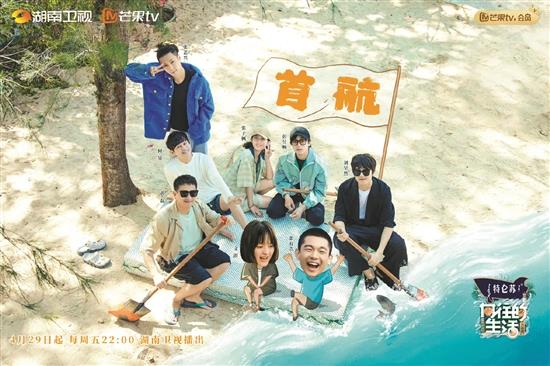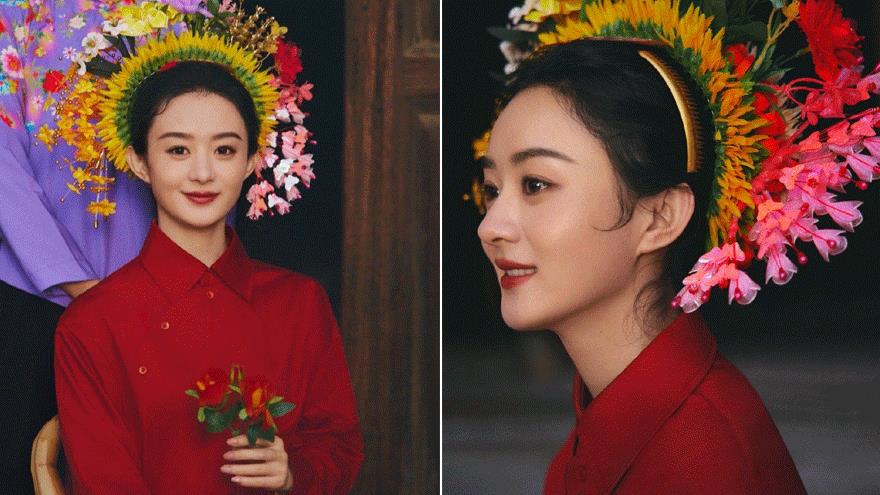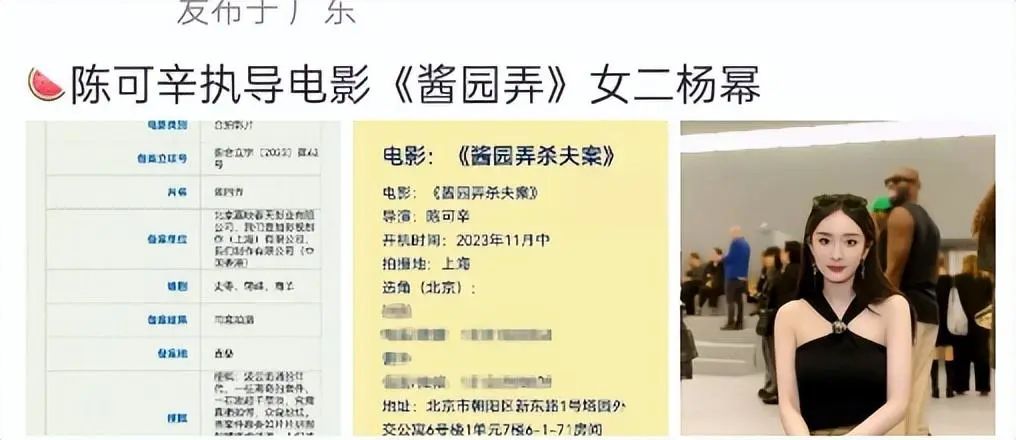The slow life variety show "Always Life" with Huang Lei, He Jiong, Zhang Yixing, Peng Yuchang and Zhang Zifeng as the main guests has officially returned for the sixth season. Before this season’s show went LIVE, the warm-up derivative variety show "Welcome to Mushroom House" with "0713 Fast Man" as the guest has exploded on social media several times, which also filled everyone’s expectations for "Yearning Life 6".
Unfortunately, the greater the expectations, the greater the disappointment. Last Friday, after the second episode of the show was broadcast with Liu Haoran, Wen Qi, and Zhang Youhao as flying guests, the audience ruthlessly complained, and the topic #longing for life, boring #once climbed to the first place on Weibo’s trending topic list, which is very embarrassing.
On the one hand, it is the eagerness of the old fans, on the other hand, it is the constantly disappearing freshness… In the sixth year of "The Life of Yearning", is it still yearning for?

Embarrassing situation:
The derivative became popular, and the positive film was even more difficult
Less than a month before the launch of the sixth season, a five-episode "warm-up derivative variety show" unexpectedly became popular – based on the concept of "sharing", "Yearning for Life" opened the Peach Blossom Garden Mushroom House in the fifth season of the show to guests who were looking forward to rural life to live by themselves, thus creating "Welcome to the Mushroom House".
The first guests of "Welcome to Mushroom House" are the "0713 Fast Men’s Re-employment Men’s Troupe" composed of Chen Chusheng, Xingxing, Land Rover, Wang Yixin, Zhang Yuan, and Wang Jieliang. Unexpectedly, with the production team of the first-time director, the props pieced together, and only 48,000 yuan of publicity funds, the "Re-employment Men’s Troupe" pulled "Welcome to Mushroom House" out of the circle. In the end, "Welcome to Mushroom House" exceeded the task of warming up for "Zhengzhu" and "Yearning Life" with a score of 8.7 on Douban. At the same time, it also received good news – the tailor-made group for the "Re-employment Men’s Troupe" has begun to prepare.
However, the momentum of the warm-up derivative variety show was too great, the audience’s expectations were obviously raised, and the requirements for the sixth season of "Yearning Life" became more and more strict. This led to the embarrassing scene of the sixth season going LIVE and being on the top of the hot search due to "boredom".
On May 17, according to the cat’s eye full network heat list, the sixth season of "Yearning Life", which has gone LIVE for 19 days, only ranked fifth in the variety show full network heat list, losing to "Ace to Ace 7", "Run 10", "Sound Live" and "New Travels".
In fact, the decline in word-of-mouth ratings is the biggest test facing this veteran slow variety show. Looking back at the first five seasons of the show, in the first to third seasons, "Yearning Life" won 7.5, 8.0, and 7.3 Douban ratings respectively, and the number of ratings also exceeded 80,000 twice, which can be called a win-win situation for word-of-mouth and ratings. However, the fourth and fifth seasons of Douban ratings not only fell to 6.9 and 6.6, but also fell sharply to around 50,000.
Mode is limited:
The content did not break through
Internet users called it "boring"
Since the program went LIVE, "The Life of Yearning" has made slogans such as "What the city can’t give you, the mountains can!" "Together, we are the life of yearning" and "Live well every day" to carry out the slow life to the end.
One of the biggest highlights of this season is the opening of the "island season" for the first time. Previously, the "Mushroom House Family" has visited Miyun Garden Village in Beijing, Heling Village in Tonglu County, Hangzhou, Zhejiang, Xiangxi, Hunan, Xishuangbanna, Yunnan, and Bailinzhou Village in Changde Taohuayuan, Hunan. This time, the program team will record the location in Changjiang Shatang Village, Hainan, which is comfortable and quiet, and looks out to the sea. The island season starts here.
Visiting houses, eating, sleeping, welcoming guests, working, chatting, and playing games, the content settings of the sixth season have not changed much. In the first installment, the program spent 100 minutes to complete the reunion of the mushroom house family, allocating rooms, making a fire to cook, and introducing a few rules. In the evening, the guests played card games leisurely. In the second installment, welcoming flying guests, going out to sea to fish, and picking up garbage by the sea became the main content. Liu Haoran and other guests have limited space to play, and they have become tool people who pull nets and pull ropes behind real fishermen. It is no wonder that netizens complained of "boredom".
The particularity of slow variety shows has caused viewers who have lost their novelty to polarize their evaluation of the show – those who like it can feel the taste of life from the clouds and the wind; those who are not interested are confused and lack interest.
Difficult to solve:
Is there a spark
Too dependent on guests
The lack of a clear story line, competition mechanism, and drama and suspense make the viewability of "Yearning for Life" extremely dependent on the variety show sense of the guests and the chemistry they inspire with each other.
In previous seasons, Song Dandan, Chen He, Huang Bo, Yang Zi, and Huang Yali had all brought a good response to the show. They were either senior seniors in the entertainment industry with super field control ability, or frequent variety show guests full of laughs, or social experts who could mingle with the guests, or who had the courage to self-destruct and get married in the show…
It can be seen that the sixth season has also put a lot of thought into the selection of guests: Wen Qi, Zhang Youhao, Peng Yuchang, and Zhang Zifeng have all cooperated with Liu Haoran, and the show has become "Liu Haoran’s Friend Bureau". As soon as they met, Liu Haoran unceremoniously told Zhang Youhao "You are a fan", and the latter responded with "eye shit", which became one of the laughs of the show. Unfortunately, these interesting interactions did not last, limited by the depth of communication, and the atmosphere between the guests was still polite and flat.
The age difference also hindered the in-depth communication of the guests: as soon as he arrived in the fishing village, Zhang Youhao, who was born in 1995, greatly lamented the age difference between himself and post-00s Wen Qi, who was 8 years old. Huang Lei, who was already 51 years old, also lamented that Zhang Zifeng had just turned 20.
The chemistry between the guests is not only the premise of the establishment of Slow Variety, but also the "trap" in its long-term development process. In the fourth season, the program team once invited many young idols in the same program. Although the room was full of people, the atmosphere was stiff and awkward. It was not until the arrival of Zheng Jun and Lao Lang, two old friends with close personal relations, that the once black-faced Huang Lei "passed the rain". From then on, the program team also intended to avoid similar scenes from happening again, and invited as many members who were familiar with the resident guests as flying guests as possible. The members of the entertainment industry who can have a chemical reaction with the resident guests are limited. In the first five seasons of the program, Chen He, Li Dan and other guests have come to the mushroom house more than once. In the future, the repeated appearance of flying guests may be more frequent. No, at the beginning of the sixth season, Peng Yuchang has already begun to ask, "Is Brother He (Chen He) still coming this time?" Huang Lei also muttered from time to time: "This job is suitable for Huang Bo"…
The law is hard to break.
The novelty has passed
Can’t keep the audience
The decline in word-of-mouth and ratings is almost an inevitable problem for longevity variety shows. The once-explosive phenomenon variety show "Where Are You Going, Dad" ended in its fifth season, and the benchmark of music competition variety shows "I Am a Singer" ended in its eighth season. The same is true for slow variety shows.
In the sixth season of the broadcast, some viewers summed up a set of "The Life of Yearning" "Universal Textbook": First, He Jiong Huang Lei bargained with the program team to get the ingredients; secondly, when the guests came to the mushroom house, everyone said hello and exchanged pleasantries, visited like a tour group, and interacted with the animal members of the mushroom house; secondly, Huang Lei began to cook in the kitchen, and the guests worked under the leadership of Zhang Yixing, Peng Yuchang, Zhang Zifeng and others; the fourth step, the people who came back from work sat around the table, ate, and chatted and blew water; the fifth step, returned to the room after dinner, played games and chatted, and rested and slept…
"Yearning for Life", which has gradually become a big investment buyer, has been repeatedly criticized for "implanting too much" and "being reduced to advertising", which is also one of the reasons for the decline in the reputation of the show – in the most implanted season, there are even as many as 14 sponsors. In the sixth season, guests picked up garbage at the beach and found the implantation method of "drift bottles sent by cows". They also complained: "The creative starting point is good, but a good environmental action has become not simple."
Objectively, in recent years, the emergence of slow variety shows with production standards and different entry points, such as "Can’t Forget the Restaurant", "Adventure Life", "Friends," Hello Life ", has also diverted audiences who love this type of show.
Although there are still longevity variety shows such as "Run", "The Voice of China", "Ace vs. Ace", "Happy Comedian" and "Star Detective", none of them belong to the category of slow variety shows. With its "flat as water" content to persist until the sixth season, "Yearning for Life" is already a leader in slow variety shows. Therefore, it is no wonder that there are Yearning fans who call for more tolerance and space for the show: "Now everyone complains of’boredom ‘without mercy. When it is time to say goodbye, the’boredom’ you complain of will become a kind and classic memory again"! (Reporter, Ai Xiuyu)



















